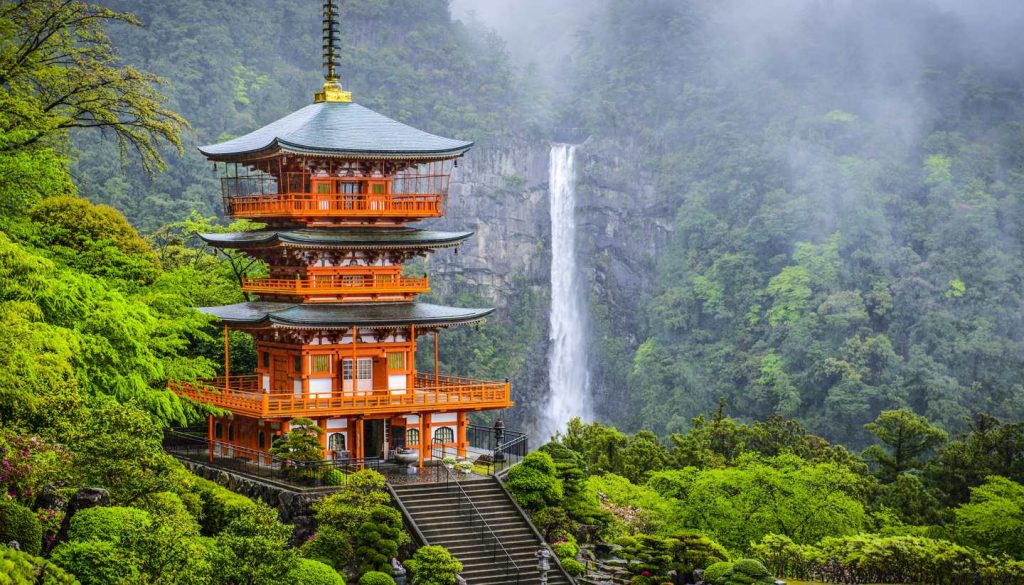by Philip Patrick

Japan is often cited as a Covid success story. Officially we are at 4,100 deaths now, which given a population of 126,000,000 and densely packed cities, is, on the face of it, remarkable. There has been endless speculation as to why we’ve got off so lightly, with my favourite being the wacky idea that the lack of sibilant sounds in the language means less saliva is transferred during conversation. But it’s the more robust overall health, especially of seniors, and possible greater immunity from prior exposure to other Corona viruses that are the most plausible explanations.
If visitors were allowed into the country, they would probably be surprised by how normally life seems to be continuing. There is no heavy-handed police enforcement of a bewildering array of ever-changing micro-regulations, and no signs of panic. Schools are operating as normal, and universities, most of them, going back to face-to-face tuition from next term. Masks, fetishised by the Japanese at the best of times, are ubiquitous and de rigueur, but only a few of the bigger department stores such as Isetan (the Japanese Harrods) insist on them, and the one time I forgot I was reminded with such exquisite gentleness it was almost charming.
However, all of the above good news could be caveated with that very useful Japanese phrase ‘toriaezu’ (for the time being).
For, just as in the UK, there is a steady drumbeat of despair from the media, with a daily fusillade of uncontextualised statistics, and reports of hospitals on the brink, always on the brink, of being overwhelmed. The media are shrieking about the ‘case’ numbers with a sort of demented zeal (NHK is exactly the same as the BBC in its coverage) and there is no reporting of lockdown scepticism – which does exist. A few on-the-make politicians are trying their best to scare everyone – most prominently Tokyo Governor Yuriko Koike, whose daily gloom laden briefings are very similar to those of Scotland’s First Minister Nicola Sturgeon.
All of this has led new PM Yoshihide Suga, who in his latest speech laid into the UK as the source of the new strain that he claimed has forced his hand, to declare a “State of Emergency” across several prefectures. This sounds serious, as it is intended to, and he has effectively banned travellers from the UK until the end of January, but its practical enforceable effects for us here are few. Thanks to the US-imposed constitution forbidding it, a full lockdown is not possible, so all the Government can really do is make more emphatic requests on hospitality venues to close early. Those that do will be given daily payments to compensate for loss of business, but there is no official penalty for those that refuse.
As ever with Japan, though, there is a public and a private face. Though the Government’s declaration did not come with any legal measures to place restrictions on personal behaviour, there are typically Japanese and not-to-be-underestimated societal pressures to conform and comply with the Government’s recommendations. Thus, indulging in leisure travel at this time of “crisis” is theoretically OK but would not make you very popular, and nor would failing to mask up in public.
The effects of this bottom up lockdown for the hospitality industry have been serious. A publican I know has seen his takings plummet after being targeted and shamed by online busybodies posting messages of hate when he tried to advertise perfectly legal events – which he then had to cancel. Regular customers have stayed away not so much from fear of Covid, but from fear of the accusation of reckless, selfish socialising. Many bars and restaurants are in dire straits and huge tax rises are on the cards to pay for the avalanche of bankruptcies and unemployment that are likely to be coming very soon.
As for the mental welfare of the citizenry – hard to gauge behind all those masks; a contact of mine who works for a crisis help line reports a sharp increase in calls. Around 80,000 jobs have been lost with many, many more expected (3 million is the estimate of one Japanese research institute). The term “Corona divorce” has been coined after a sharp uptick in separations from couples spending far more time together in tiny dwellings than they had bargained for.
PM Suga is torn. He is personally invested in things staying open – he instigated the popular and successful “Go to Travel” campaign that actually encouraged people to move around the country and help the hospitality industry (now suspended). He may also be hanging on the last vestiges of the Olympic dream, upon which enormous prestige and a huge amount of money is resting. The cost of a cancellation, on top of the expense incurred through the Corona crisis would be mind-boggling. But with a recent poll suggesting 80% of the Olympic-weary public would rather just forget about the whole thing, and with time running short, that may be where we are heading.
But his personal ratings are plummeting, as he is increasingly blamed for what is being presented as a rapidly worsening situation. He is coming under increasing pressure to go farther and negotiations are underway between political parties for revisions to the “special measures act”, which would enable local governments to fine businesses that didn’t comply with government advice.
For lockdown sceptics this is a worrying development, and could be the first step in the direction of undermining the constitution that has kept Japan’s Covid response the right side of proportionate.
Toriaezu.










Donate
We depend on your donations to keep this site going. Please give what you can.
Donate TodayComment on this Article
You’ll need to set up an account to comment if you don’t already have one. We ask for a minimum donation of £5 if you'd like to make a comment or post in our Forums.
Sign UpLatest News
Next PostLatest News